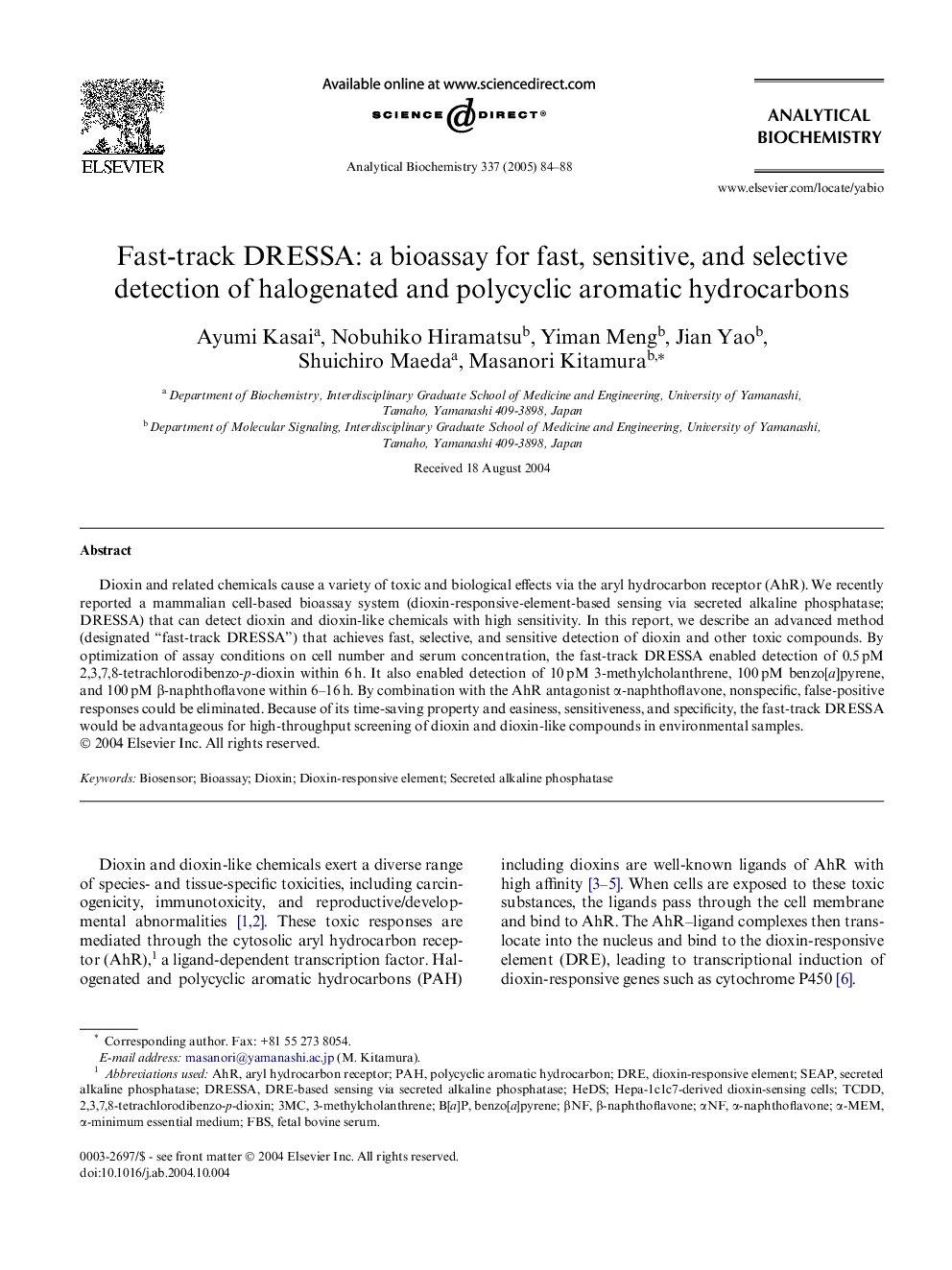| Article ID | Journal | Published Year | Pages | File Type |
|---|---|---|---|---|
| 10533271 | Analytical Biochemistry | 2005 | 5 Pages |
Abstract
Dioxin and related chemicals cause a variety of toxic and biological effects via the aryl hydrocarbon receptor (AhR). We recently reported a mammalian cell-based bioassay system (dioxin-responsive-element-based sensing via secreted alkaline phosphatase; DRESSA) that can detect dioxin and dioxin-like chemicals with high sensitivity. In this report, we describe an advanced method (designated “fast-track DRESSA”) that achieves fast, selective, and sensitive detection of dioxin and other toxic compounds. By optimization of assay conditions on cell number and serum concentration, the fast-track DRESSA enabled detection of 0.5 pM 2,3,7,8-tetrachlorodibenzo-p-dioxin within 6 h. It also enabled detection of 10 pM 3-methylcholanthrene, 100 pM benzo[a]pyrene, and 100 pM β-naphthoflavone within 6-16 h. By combination with the AhR antagonist α-naphthoflavone, nonspecific, false-positive responses could be eliminated. Because of its time-saving property and easiness, sensitiveness, and specificity, the fast-track DRESSA would be advantageous for high-throughput screening of dioxin and dioxin-like compounds in environmental samples.
Related Topics
Physical Sciences and Engineering
Chemistry
Analytical Chemistry
Authors
Ayumi Kasai, Nobuhiko Hiramatsu, Yiman Meng, Jian Yao, Shuichiro Maeda, Masanori Kitamura,
